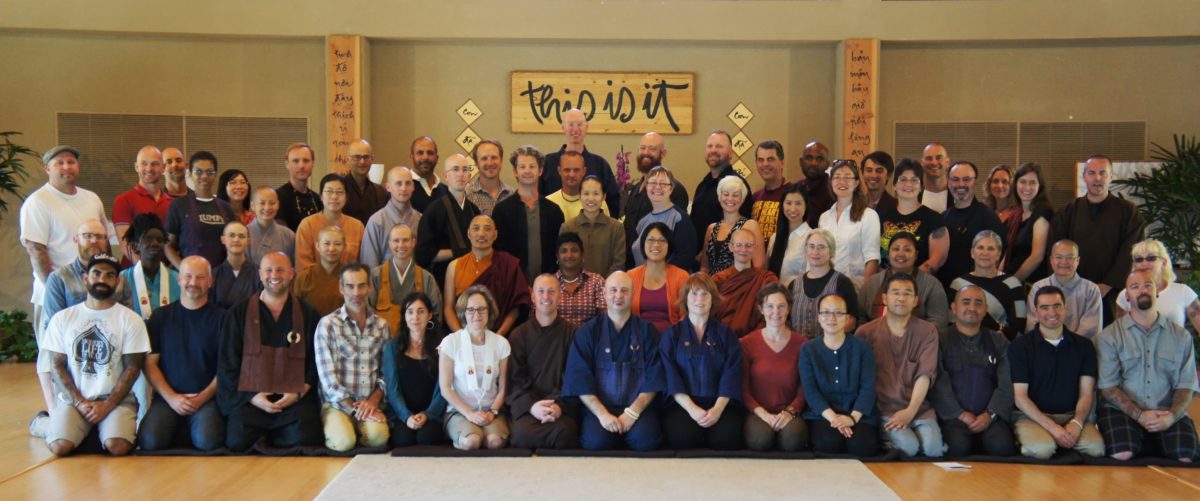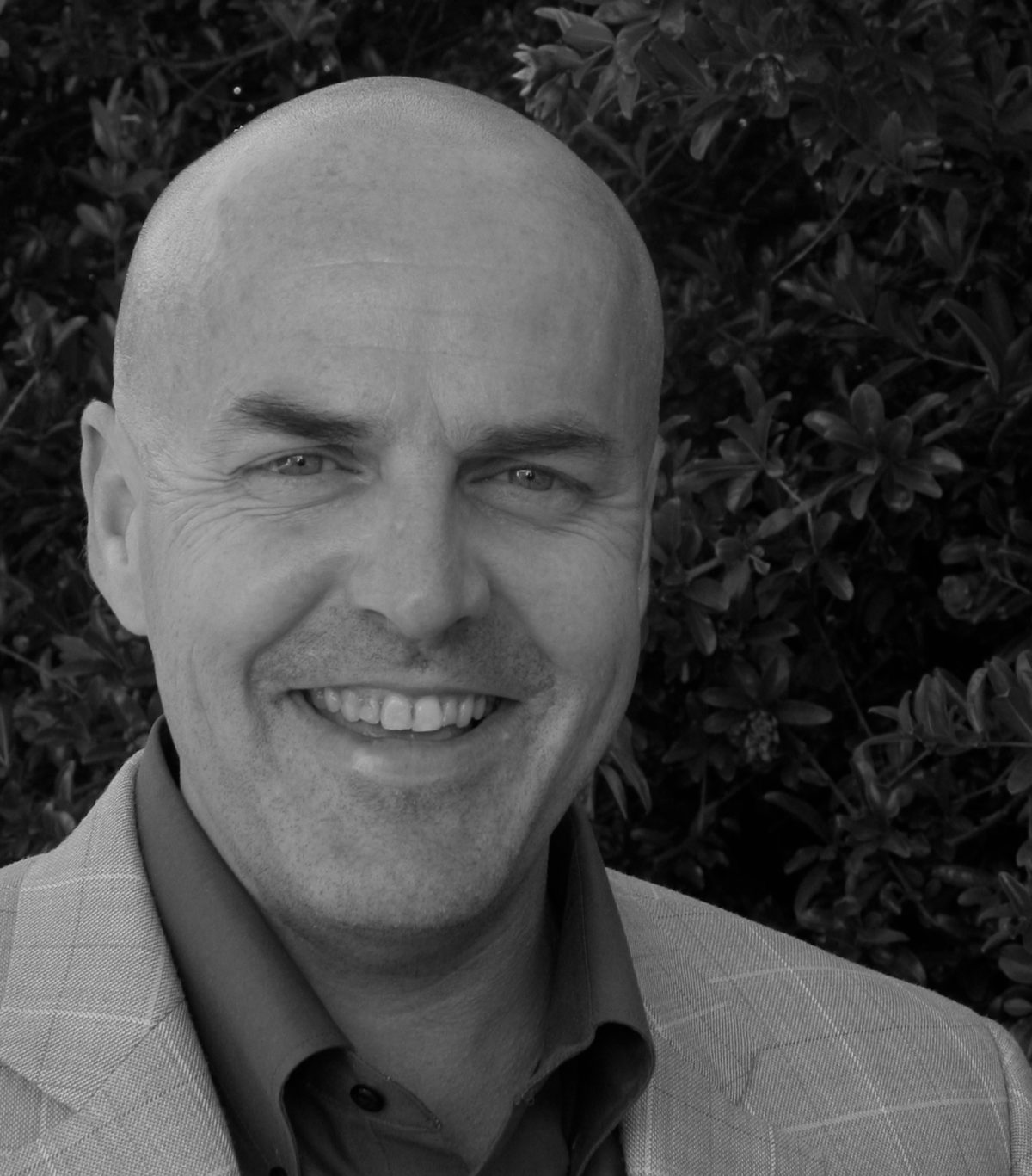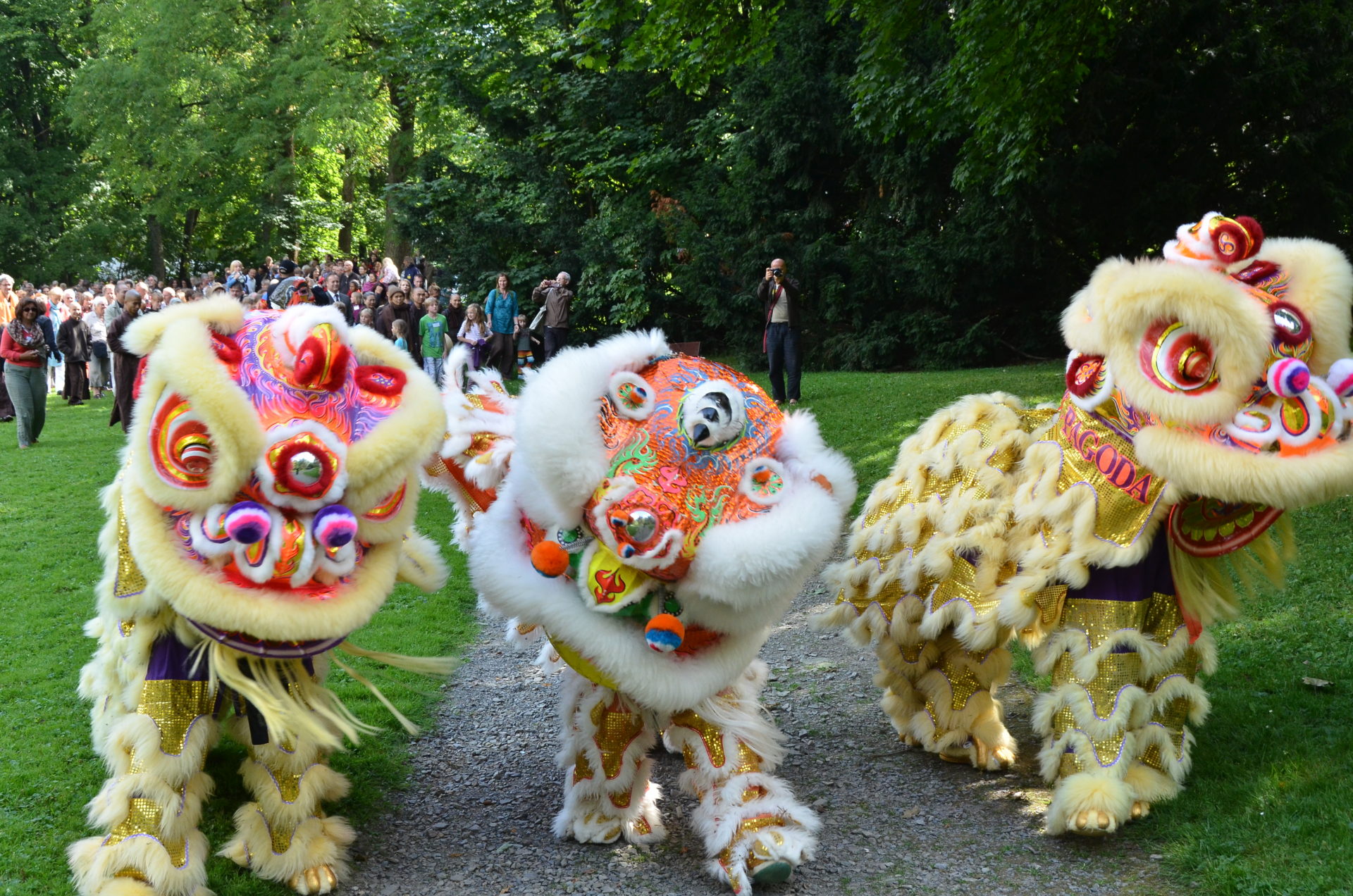By Kenley Neufeld

The location was the hidden valley of Deer Park Monastery near San Diego, California. This five-hundred-acre sanctuary provided the space for about sixty Dharma teachers to meet for five days in early June. The weather was perfect, the sharing intimate, the facilitation exceptional, and the practice grounded. The Dharma teachers came from Theravada,
By Kenley Neufeld

The location was the hidden valley of Deer Park Monastery near San Diego, California. This five-hundred-acre sanctuary provided the space for about sixty Dharma teachers to meet for five days in early June. The weather was perfect, the sharing intimate, the facilitation exceptional, and the practice grounded. The Dharma teachers came from Theravada, Ekayana, Mahayana, Vajrayana, and Triratna streams, bringing a richness of experience to our gathering and conversation. Though the gathering was located at Deer Park Monastery, it was organized and facilitated by a team of five Dharma teachers from each of these lineages. We felt much gratitude to the monastics of Deer Park for opening up their home for our practice. In addition, the retreat was offered with the generous sponsorship support of the Thich Nhat Hanh Foundation.
As active Dharma teachers in a tradition of Buddhadharma offering refuge in the Three Jewels, we gathered as a continuation of a similar retreat at the Garrison Institute in 2011. We came together to share our experience and to support each other as young Dharma teachers (born between 1960 and 1980) teaching Western Buddhism. The intent was to connect teachers for whom Dharma teaching is a (or the) significant life activity, whether through teaching retreats, guiding a Buddhist temple, or other format. Being together demonstrated that we are truly a community of teachers, neither independent nor separate because of our tradition. We need not teach in isolation and can support one another in our practice and teachings.
Our teaching experience ranged from one year to twenty-five years; we were lay and monastic teachers, those who live in community, and those who work full time outside of the Dharma practice; we represented Canada, Korea, the United States, and the United Kingdom. The gathering had a “conference” feel to it and we spent a great deal of time in dialogue rather than in meditation and practice.
Being a newer Dharma teacher, I arrived with my own nervousness about what to expect from being with sixty-plus other teachers. From the very first mindful mingling activity, I felt a connection and knew that I was in a community of like-minded Dharma sisters and brothers. We were ably guided by a group of four teachers who made it easy to participate and feel included. I came away with this word on my mind to describe the gathering: inclusive. Inclusive in terms of practice streams, voices being heard, needs being expressed, and topics being explored. We had many “open space” time slots to delve deeply into the topics that most interested us as teachers.
We used crowdsourcing, the practice of obtaining ideas by soliciting contributions from a large number of people, to determine the best ideas for group exploration. This was accomplished in two steps: first, each individual wrote a topic idea on a piece of paper. Second, we randomly moved about the room and exchanged the idea with another person, who then scored the idea before we moved around the room again to exchange ideas. In the end we used the scores to identify our top ideas for discussion. We co-created this gathering together.
After learning more about each other (such as age, lineage, years of teaching, etc.), we focused on these themes:
- What are we grappling with as teachers?
- Storytelling
- Hard Dharma topics
- Sustaining ourselves
Within each of these general areas, more specific topics emerged, such as patriarchy, privilege, ethics, teacher accountability, scholarship, dating, recovery, trauma, sexuality, race, faith, balance, gender, LGBTQ,* and teaching tips. One of the great tools used during the retreat was creating space for every voice to be heard. We met in large groups, small groups, triads, and pairs. Casual and small group conversations were thriving throughout the retreat.
The most significant work for me during this gathering was observing my mind. It is so easy to allow judgment to arise and to get caught by my ideas of how people “should practice” and how people “should teach.” These feelings were particularly acute because Deer Park is a second home for me, and yet many of our regular Plum Village practices were not recognized or used during these five days. All my ideas of how things “should be” came rapidly to the surface, only to be let go with each breath. If I can’t let go, there is a huge barrier that severely impacts my relationships with others. This retreat offered me an opportunity to grow in the area of group participation.
I came away from the gathering feeling supported, hopeful, inspired, and grounded. I have a deeper commitment to my teaching activities along with an awareness of the community of teachers outside my tradition that I can call upon, and learn from, throughout the years. I have a deeper understanding of what my brothers and sisters are doing and how we inter-are with each other. I also have hope for bringing this experience to the sixty-four active Tiep Hien Dharma teachers in North America.
* Lesbian, Gay, Bisexual, Transgender, Queer

Dharmacharya Chan Niem Hy (Kenley Neufeld) received the Lamp of Wisdom in 2012 and supports Sangha work from his home in Ojai, California.

